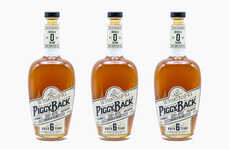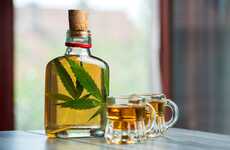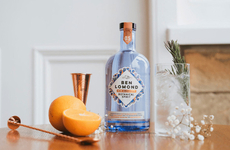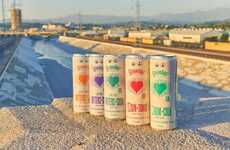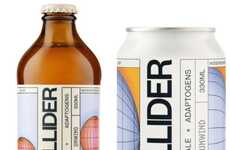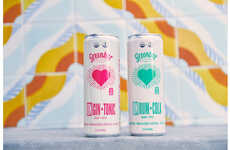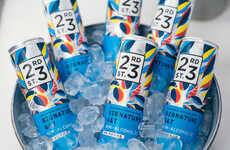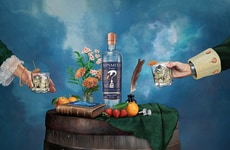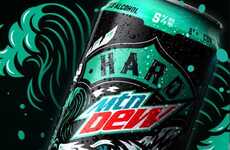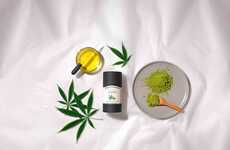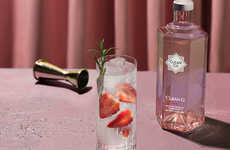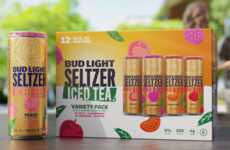
Sylva Makes Dark Non-Alcoholic Spirits with Wood and Grains
Laura McQuarrie — September 11, 2024 — Lifestyle
A new generation of drinkers wants to enjoy alcohol without compromise and they're embracing innovative, non-alcoholic spirits like Sylva as sophisticated alternatives that allow them to savor complex flavors and maintain a mindful lifestyle.
Sylva is a new non-alcoholic distillery and maturation lab that extracts character from a selection of wood and cereals to produce small-batch, made-to-order alternatives to dark spirits. Padauk, a West African wood, and rye are prominently featured in Sylva's debut release made with methods like sonic maturation, vacuum distillation and vacuum kiln roasting.
Sylva is a new venture from the founder of Seedlip, Ben Branson, who is leading the research, experimentation and development of the project with Jack Wareing.
Sylva is a new non-alcoholic distillery and maturation lab that extracts character from a selection of wood and cereals to produce small-batch, made-to-order alternatives to dark spirits. Padauk, a West African wood, and rye are prominently featured in Sylva's debut release made with methods like sonic maturation, vacuum distillation and vacuum kiln roasting.
Sylva is a new venture from the founder of Seedlip, Ben Branson, who is leading the research, experimentation and development of the project with Jack Wareing.
Trend Themes
1. Non-alcoholic Spirit Innovations - Emerging non-alcoholic distilleries like Sylva use unique ingredients and advanced techniques to provide complex alternatives to traditional spirits.
2. Sonic Maturation Techniques - Sylva's use of sonic maturation introduces a novel method for flavor development in the production of non-alcoholic spirits.
3. Sustainable Spirit Production - Utilizing woods like Padauk and rye, Sylva highlights trends in sustainable sourcing and eco-conscious production.
Industry Implications
1. Beverage Industry - Innovative non-alcoholic spirits cater to the growing demand for sophisticated, alcohol-free options among consumers.
2. Food and Drink Technology - Advancements in processes such as vacuum distillation and kiln roasting are transforming how non-alcoholic spirits are crafted.
3. Sustainable Agriculture - The selection of ingredients from sustainable sources reflects an industry-wide push towards more environmentally friendly production methods.
7
Score
Popularity
Activity
Freshness

